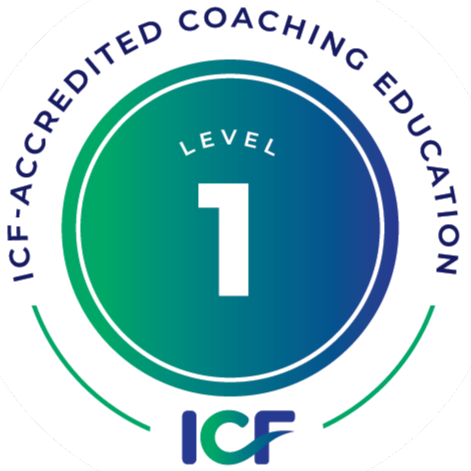
By: Elizabeth Saigal, Ph.D. CLC
Do you focus on getting the word out about your business with the mindset of being interviewed? You have to impress to get the job - of being hired. This attitude incorporates a lot of pressure and judgment around what we might say or do to represent ourselves. It also makes it more personal when your services are declined.
Perhaps you take the opposite perspective that you are interviewing the people you want to work with. This viewpoint shifts the pressure and judgment over to the potential client or sponsor.
Both of these attitudes limit our ability to really connect with others and do not allow for the equal acceptance at the heart of coaching. If you, or the person you are chatting with, feels like they are being audited they will not be as likely to reveal gifts and challenges, hiding instead behind chitchat and pleasantries.
Many of us network by going to meetings concentrating on conducting “interviews”, parroting our 30 second elevator pitch and handing out our business card to as many people as possible. This requires considerable effort and is frequently frustrating. It is hard to get good results as this mindset rarely enables a meaningful exchange that finds the points of resonance.
Who isn’t recoiled by this type of solicitation and ‘Hard Sell’? I got to thinking about what type of more respectful approach I would prefer to encounter. Personally, I love to learn about new products and ways of doing things even when I am not in the market for them. I will often go on to share this new knowledge. So, what can you do to share information about your value as a coach whilst maintaining a relaxed ‘no pressure to buy’ atmosphere?
- Focus on a deeper connection from a place of acceptance
Instead of going for interview, consider it as building community and finding points of connection. Have a mindset of relating to just a handful of people and what they do in some depth. Be really curious and sincerely interested. Find out where your stories intersect - common themes and similarities in your challenges, hobbies, places visited, and what you do for fun. People work with you because they know, like and trust you. This comes from just being present with people and entering into an interaction where you are both giving and receiving.
It is much easier to impress when you demonstrate the strength that you are okay with who you are as well as who they are. Present yourself flaws and all. Demonstrate that you accept the mistakes you make as part of the process of growth and development. This gives them permission to do the same and releases performance anxiety. We are more likely to take our time, be ourselves, and have a favorable impression if the environment is friendly and comfortable. And, these exchanges are more fun!
- Tell your Stories
What success stories can you share about working with others and their growth and development? Describe how you were the catalyst for shift in your clients’ life (without breaking confidentiality). For example, I had a client who had moved into the area and was unsure about her next career step. Together, we identified all her possibilities working for herself or as an employee. She became crystal clear on a vision that aligned with her values and envisioned lifestyle. This inspired action and she went on to be hired for the position she had described within a few months.
What anecdotes can you tell about your own personal experiences, and setbacks? Where have you learned the deepest lessons in your life that made you who you are today? Most people have good reasons for doing what they do – if not, perhaps you have not yet found your vocation. Speak to your own experiences in becoming engaged with the industry. For example, I know a Chiropractor who suffered from severe headache and migraine until she herself went for treatment. Her affliction went away and never came back and she was inspired to train to share this gift with others. These kinds of stories inspire people to connect with us. They provide information about your commitment and how what you do contributes to both your own and other people’s quality of life.
- Speak to the clients need
As people talk about themselves they reveal their frustrations and desires which tells you how you can be of service. This is where you have to work (just a little). You need to be absolutely clear on your niche and particular skills as a coach and share this information as it pertains to their specific needs. This requires an individual approach identifying the specific ways in which you might provide value for them rather than the one size fits all elevator pitch. You can ask them how they experience this challenge (point A) and what they would like to have instead (point B). Then share that coaching provides direct investment in self development enabling the transition from point A to point B. You don’t need to be pushy and obnoxious, give everything away for free, or teach coaching techniques, you just have to make explicit how you provide value. You can even give them a choice about taking a next step with you by asking “would you like to follow up”, or “would you like to give it a try”.
These three factors of connection, sharing your story, and speaking to a need generate rapport, promote understanding, and communicate how you are passionate about what you do. Building relations in this way promotes a natural interest in what you have to offer.
Many people may identify a need, but not be willing to do the work to address it either with or without you! But now, should they decide to engage or know someone else who is ready to, they already have a relationship with a coach as an extra avenue of support. This connection is your ripple in the pond for attracting new clients.
 Elizabeth Saigal is an ILCT Certified Life Coach and ILCT student. She offers Life Design Coaching for those intent on connecting with their inner truth and aligning with their intuition to live a life on purpose. You can connect with her and sign up to receive her Free Ten Step Life Design System at www.myspirecoaching.com
Elizabeth Saigal is an ILCT Certified Life Coach and ILCT student. She offers Life Design Coaching for those intent on connecting with their inner truth and aligning with their intuition to live a life on purpose. You can connect with her and sign up to receive her Free Ten Step Life Design System at www.myspirecoaching.com




